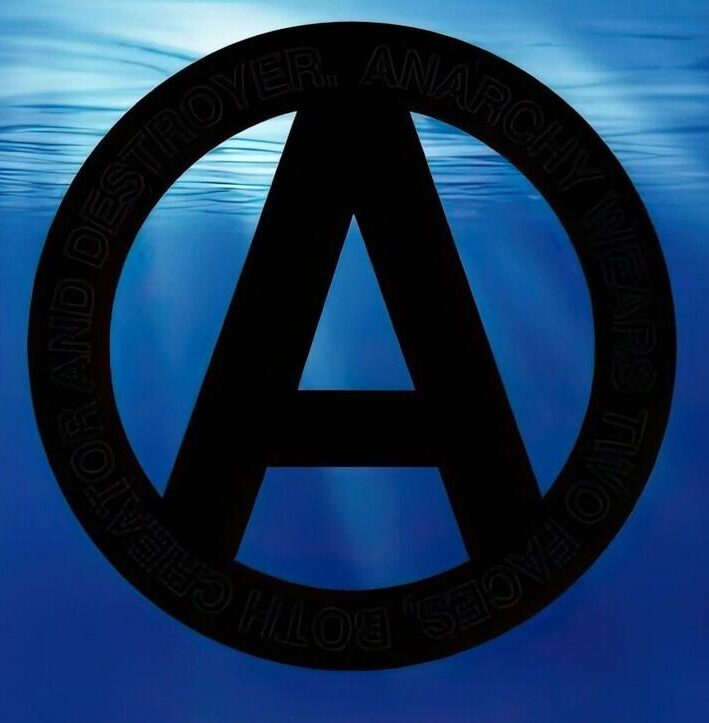This paper explores a green anarchist perspective on sabotage as a necessary and ethical tactic in the struggle against capitalist ecocide. It critiques the logic of industrial civilization, challenges liberal environmentalism, and defends sabotage as a strategic and symbolic act of resistance. Drawing from deep ecology, anarcho primitivism, and eco-insurrectionary traditions, the essay contends that dismantling capitalism requires direct confrontation, not reform.
An introduction: Capitalism as Ecocide.
The global ecological crisis is not a byproduct of mismanagement, but the logical outcome of capitalism’s endless pursuit of growth, domination, and commodification. The climate emergency, species extinction, deforestation, and ocean acidification are not isolated issues but manifestations of a system predicated on the exploitation of both labor and nature. Green radical anarchists argue that the capitalist state, regardless of its democratic or authoritarian facade, is fundamentally incapable of solving the crisis it creates.
Liberal environmentalism and “green capitalism” offer market solutions, carbon trading, and regulatory frameworks that merely delay collapse while consolidating elite control. In contrast, green anarchism seeks a total rupture: the abolition of hierarchy, the destruction of industrialism, and the liberation of both human and nonhuman life. Within this revolutionary framework, sabotage is not only justified, it is imperative.
Theoretical Foundations of Green Anarchism.
Green anarchism merges ecological concern with anarchist critique. It draws on traditions ranging from social ecology (Murray Bookchin), deep ecology(Arne Naess), to anarcho-primitivism (John Zerzan), with a shared rejection of anthropocentrism, hierarchy, and domination.
The state is seen not merely as a political structure, but as a mechanism of control that enforces ecological and social subjugation. Green anarchists posit that true ecological balance requires a decentralization of power, the collapse of industrial infrastructure, and the rewilding of human consciousness and landscapes. This anti-civilizational stance interprets technological society as inherently violent and alienating, a system that has mechanized life and severed it from its ecological roots.
Sabotage as Tactic and Ethics
Sabotage, within this context, is not wanton destruction but a targeted, conscious refusal to cooperate with systems of oppression. It is a strategic disruption of capitalist operations, from damaging pipelines, disabling machinery, to monkeywrenching corporate infrastructure. The term “eco-sabotage” gained prominence through groups like Earth First!, whose motto “No Compromise in Defense of Mother Earth” embodies this defiant spirit.
Radical theorist, Edward Abbey (The Monkey Wrench Gang) imagined sabotage as both moral and necessary in defense of the wild. For many green anarchists, sabotage is a form of counter-violence, a reaction to the systemic violence of logging, mining, drilling, and poisoning ecosystems.
Critics claim that sabotage alienates the public and invites repression. Yet green anarchists argue that polite protest is tolerated precisely because it is ineffective. Sabotage, on the other hand, interrupts the smooth operation of capital, exposes the fragility of the system, and awakens agency in the oppressed.
Breaking the Chains: From Protest to Insurrection
Sabotage is not a substitute for revolution, but a spark. It symbolizes the refusal to cooperate, the shedding of capitalist conditioning. Acts of disruption, even small ones, shatter the illusion of total control. In this sense, green anarchism aligns with insurrectionary anarchist thought, revolution is not an event but a process, a spreading fire of disobedience.
To break the chains of capitalism means to sever the psychological, technological, and infrastructural dependencies that bind people to a system that is killing the planet.
Green anarchists propose autonomous zones, rewilded landscapes, permaculture, guerrilla gardening, and decentralized communes as post-capitalist lifeways.
Conclusion: Toward a New Earth
In a world where recycling slogans replace real resistance, green anarchism dares to imagine and enact a deeper rupture. Sabotage, far from nihilism, is an affirmation: the Earth matters more than profit. Wildness matters more than control. Freedom cannot exist in a world of pipelines and profit margins.
The chains of capitalism will not break themselves. They must be shattered,with courage, with care, and with a commitment to a new Earth beyond domination.
